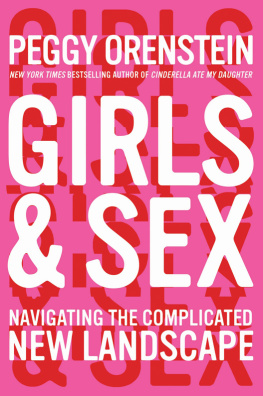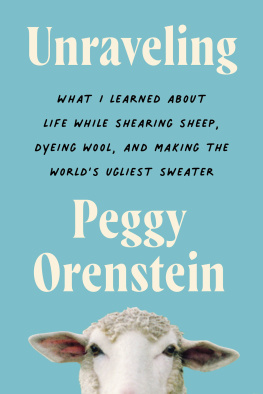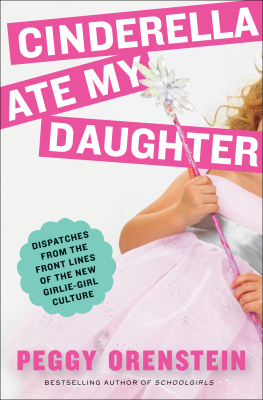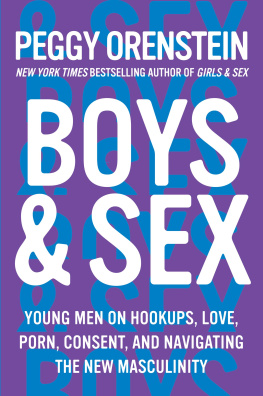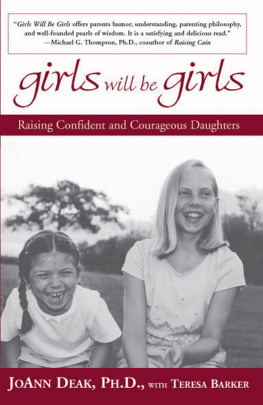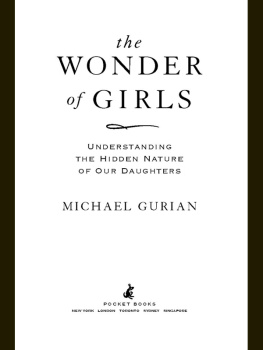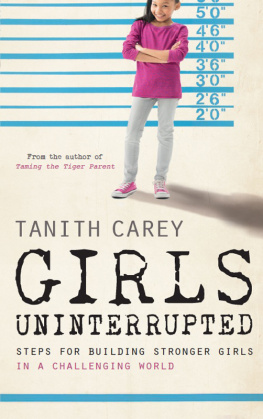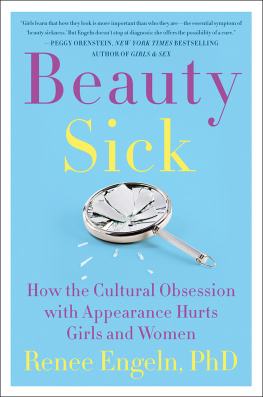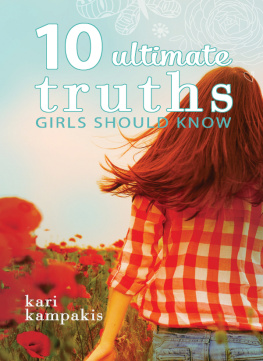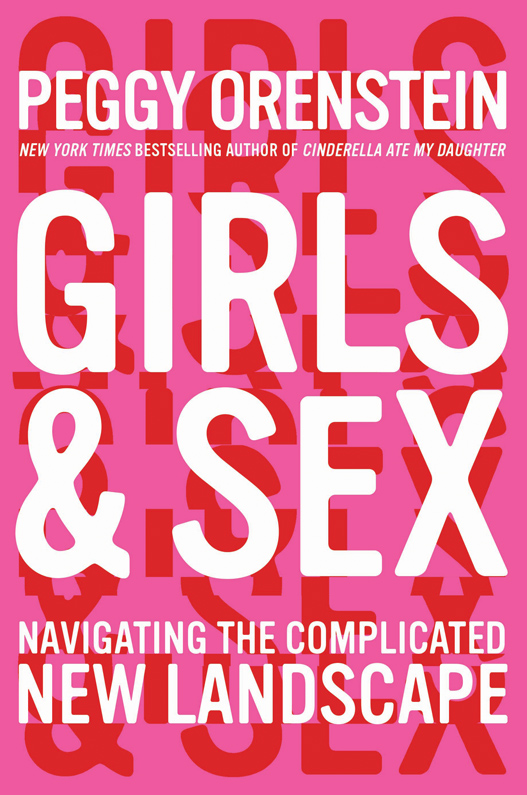For my one daughter, my eight nieces, my two nephews,
and all the girls and boys Ive met along the way
Contents
Guide
A few years ago I realized that my daughter wouldnt be a little girl much longer. She was headed toward adolescence, and honestly, it put me in a bit of a panic. Way back in preschool, when she was swanning around in her Cinderella gown, I took a deep dive into the princess industrial complex and came back convinced that its seemingly innocent pink-and-pretty culture was priming little girls for something more insidious later on. Well, later on was now coming at us like a Mack trucka Mack truck whose driver was wearing five-inch heels and a micro-mini, and was checking her Instagram when she ought to have been looking at the road. Id heard horror stories from friends with teenagers about how girls were treated in the so-called hookup culture; of girls coerced into sexting or victimized in social media scandals; of omnipresent porn.
I was supposed to be the expert at decoding the mixed messages of girlhood. I traveled the country schooling parents on the difference between sexualization and sexuality. When little girls play at sexy before they even understand the word, Id tell them, they learn that sex is a performance rather than a felt experience. True enough. But what about once they did understand the word?
It wasnt as if I had any answers. I, too, was just trying my best to raise a healthy daughter at a time when celebrities presented self-objectification as a source of strength, power, and independence; when looking desirable seemed a substitute for feeling desire; when Fifty Shades of Grey, with its neurasthenic lip-chewing heroine and creepy stalker billionaire, was being hailed as the ultimate feminine fantasy; when no woman under the age of forty appeared to have pubic hair. Sure, as a girl I wore out songs such as Sexual Healing and Like a Virgin, but they were Disney Channel fodder compared to Lil Waynes bitch whose strict diet in the song Love Me consists of nothing but dick; or Maroon 5s promise to hunt a woman down and eat her alive in Animals. (In the video, lead singer Adam Levine stalks the object of his obsession while dressed as a butcher wielding a meat hook, then has sex with her in a blood-drenched finale.) Its enough to make me apologize to Tipper Gore for the way my friends and I mocked her in the 90s. Meanwhile, study after study has revealed a shocking prevalence of sexual assault on college campuses; the problem is so dire that the president of the United States (himself the father of two teen girls) has become involved.
Even as girls outnumbered boys in college, as they leaned in to achieve their academic and professional dreams, I had to wonder: Were we moving forward or backward? Did todays young women have more freedom than their mothers to shape their sexual encounters, more influence and more control within them? Were they better able to resist stigma, better equipped to explore joy? And if not, why not? Girls now live in a culture where, increasingly, unless both parties agree unequivocally to a sexual encounter, there is no consentonly yes means yes. All well and good, but what happens after yes?
I NEEDED, AS a mom and a journalist, to find out the truth behind the headlines, what was real and what was hype. So I began interviewing girls: engaging in in-depth, hours-long conversations about their attitudes, expectations, and early experiences with the full range of physical intimacy. I recruited daughters of friends of friends (and the friends of those girls, and their friends, too); students of high school teachers I had met. I would ask professors on campuses I visited to send out an e-mail blast, inviting any girls interested in talking to me to get in touch. In the end, I interviewed more than seventy young women between the ages of fifteen and twenty, an age span during which most will become sexually active. (The average American has first intercourse at seventeen; by nineteen, three fourths of teens have had sex.) My focus remained on girls alone because, as a journalist, writing about young women has been a passion, a calling: Ive been chronicling their lives for over twenty-five years. Girls, too, continue to live with unique contradictions as they make sexual choices: despite the seismic changes in expectations and opportunity, theyre still subject to the same old double standard, the idea that a sexually active girl is a slut, while a similar boy is a player. Now, though, girls who abstain from sex, once thought of as the good girls, are shamed as well, labeled virgins (which is not a good thing) or prudes. As one high school senior said to me, Usually the opposite of a negative is a positive, but in this case its two negatives. So what are you supposed to do?
I dont claim to reflect the experience of all young women. My interview subjects were either in college or college boundI specifically wanted to talk to those who felt they had all options open to them, the ones who had most benefited from womens economic and political progress. They were also self-selected. That said, I cast my net broadly. The girls I met came from across the country, from large cities and small towns. They were Catholic, mainline Protestant, Evangelical, Jewish, and unaffiliated. Some of their parents were married, some were divorced; some lived in blended families, some in single-parent households. They came from politically conservative as well as liberal backgrounds, though most leaned somewhat toward the latter. The majority was white, but many were Asian American, Latina, African American, Arab American, or mixed race. About 10 percent identified as lesbian or bisexual, though most, particularly those still in high school, had not acted on their attraction to other girls. Two were physically disabled. While most came disproportionately from upper-middle-class families, there was some range of economic backgroundI interviewed girls from the East Side of Manhattan and the South Side of Chicago; girls whose parents managed hedge funds and those whose parents managed fast-food restaurants. To protect their privacy, I have changed all names and identifying details.
At first, I worried that girls wouldnt discuss such a personal subject with me. I neednt have. Wherever I went, I had more volunteers than I could handle. They were not just eager, they were hungry to talk. No adult had ever before inquired about their experience of sexuality: what they did, why they did it, how it felt, what they hoped for, what they regretted, what was fun. Often in interviews, I barely asked a question. The girls would just start talking, and before we knew it, hours had gone by. They told me how they felt about masturbation, about oral sex (both giving and receiving), about orgasm. They talked about toeing that line between virgin and slut. They told me about boys who were aggressive and boys who were caring; boys who abused them and boys who restored their faith in love. They admitted their attraction to other girls and their fears of parental rejection. They talked about the complicated terrain of the hookup culture, in which casual encounters precede (and may or may not lead to) emotional connection; now commonplace on college campuses, it was rapidly drifting down to high school. Fully half the girls had experienced something along a spectrum of coercion to rape. Those stories were agonizing; equally upsetting, only two had previously told another adult what had happened.
Even in consensual encounters, much of what the girls described was painful to hear. Perhaps that seems like nothing new, but that in itself is worth exploring. When so much has changed for girls in the public realm, why hasnt more

